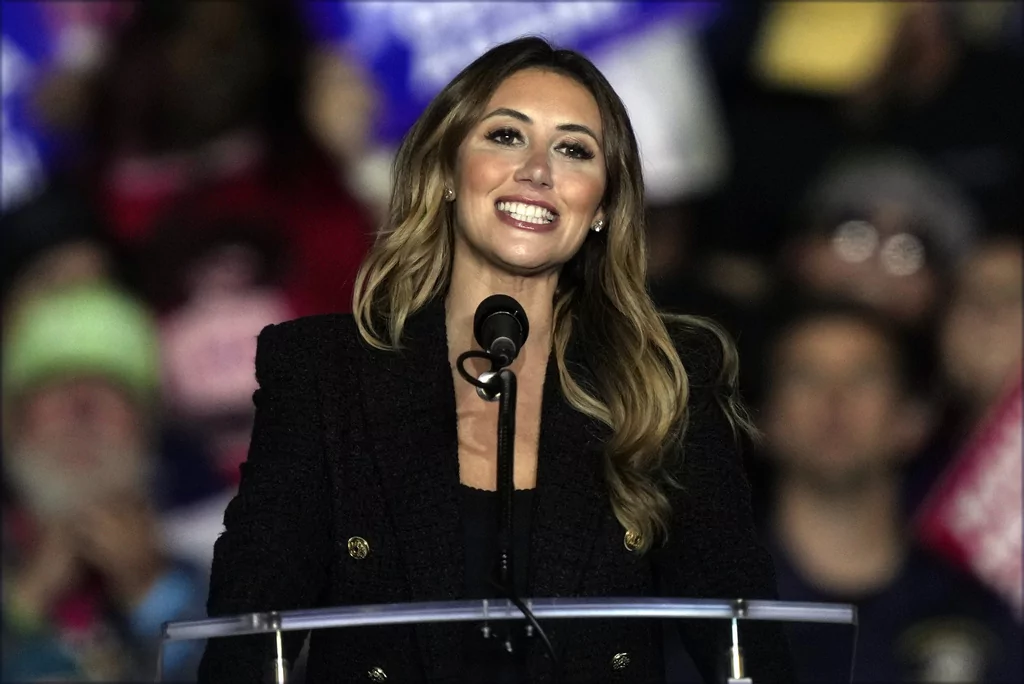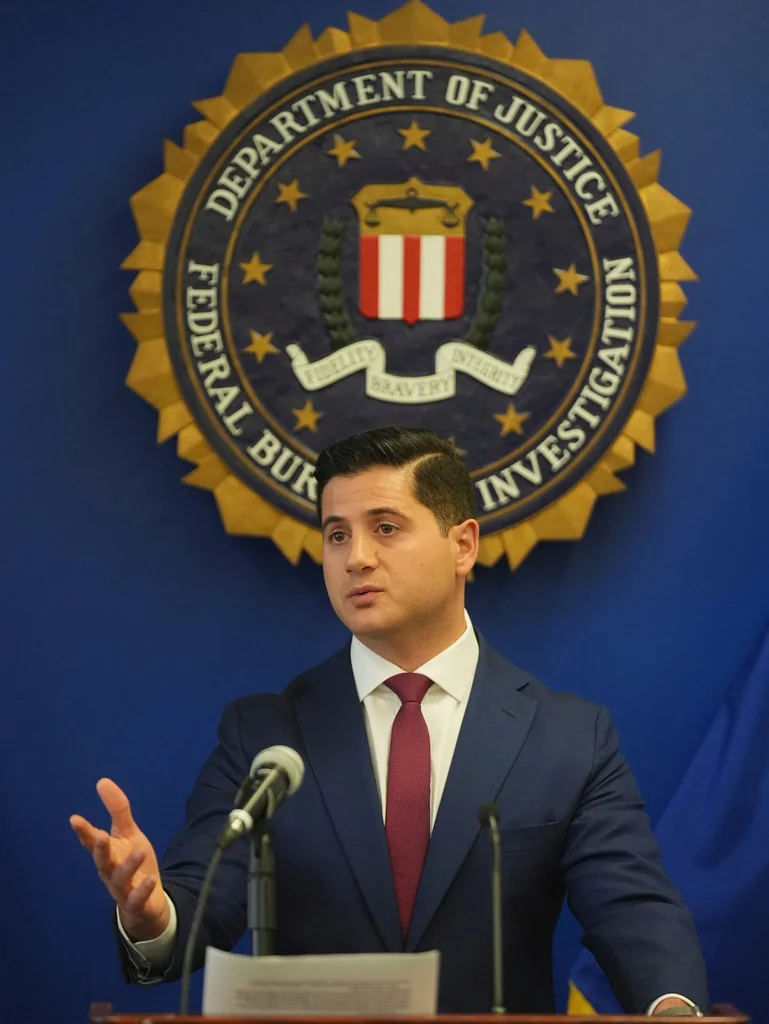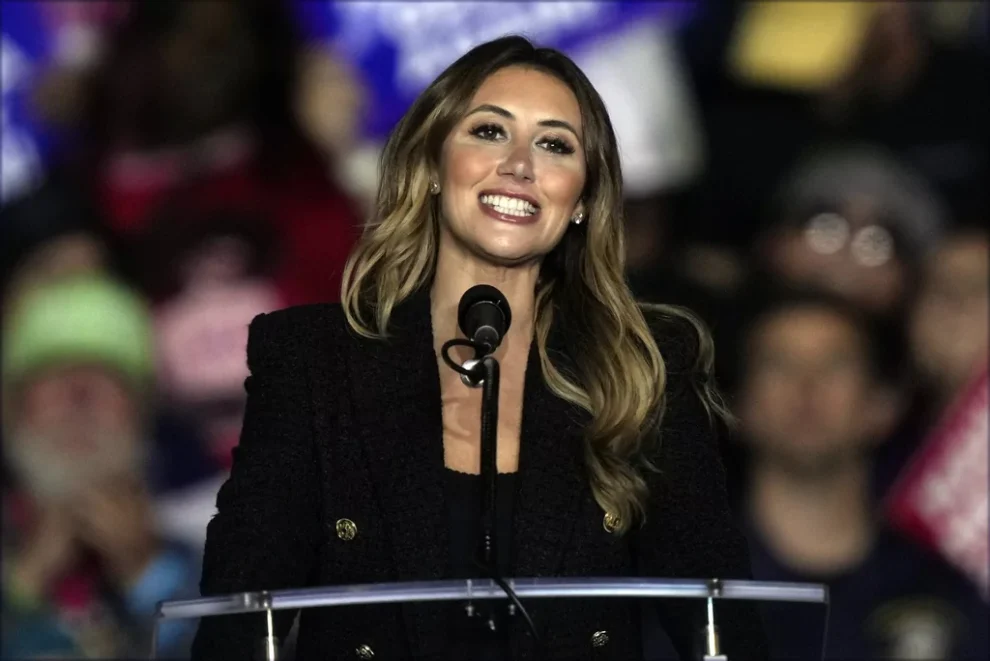More than seven months into President Donald Trump’s second term, his administration has yet to see a single United States attorney nominee confirmed by the Senate.
Of the 94 districts that require a top federal prosecutor, only a dozen nominees have cleared the Senate Judiciary Committee, and none have reached the floor for a vote. Faced with this confirmation logjam, the Trump administration has increasingly leaned on interim and acting appointments allowed by federal law.

With Democratic senators blocking nominees via the century-old blue slip tradition, which involves consulting with home-state senators over who to nominate, and with some courts reluctant to extend interim terms, the Justice Department is keeping its candidates in place through tools such as the Federal Vacancies Reform Act.
“We’re not in a time where senators all get along and work together. Washington is broken,” David Gelman, a defense attorney practicing in New Jersey federal courts, told the Washington Examiner.
“The president has a mandate, and that means getting his people in place to do the job,” he added.
Senate rules give way to standoffs
The stalemate largely stems from the blue slip process, which has empowered senators to block prosecutors’ confirmations in their home states. States with two Democratic senators have refused to return slips for nominees such as Alina Habba to the U.S. District of New Jersey and Bill Essayli to the Central District of California, effectively freezing nominations.

Trump repeatedly called on Senate Judiciary Chairman Chuck Grassley (R-IA) this week to end the tradition, calling it outdated and undemocratic. Grassley, a key ally of Trump in the Senate, indicated his support for efforts to cancel the Senate’s August recess to clear the backlog but pushed back on Trump’s urgency to end the blue slip tradition.
Gelman backed Trump’s position, saying the president’s view “is exactly right” given that senators such as Cory Booker and Andy Kim won’t support Habba, “no matter her qualifications.”
He bluntly added: “That’s not a reason to deny a president’s choice, it’s just obstruction.”
DOJ leans on formal extensions to maintain leadership
In New Jersey, after Habba’s 120-day term expired and judges selected Desiree Grace last week, Attorney General Pam Bondi removed Grace and reinstalled Habba as acting U.S. attorney under the Vacancies Act.
Analogous moves occurred in New York, where John A. Sarcone III continued in office, and in California, where Essayli’s interim term was converted into acting status.
Now, in Nevada, a parallel scenario is unfolding.
On Tuesday, the DOJ extended Republican National Committeewoman Sigal Chattah’s interim term and designated her as acting U.S. Attorney to preempt the federal court from appointing someone else after her 120 days expired. More than 100 retired judges opposed her permanent appointment due to inflammatory political rhetoric.
In each of these cases, the DOJ has justified the maneuver as necessary to prevent court encroachment on executive appointment powers. The law permits the attorney general to make such extensions under the Federal Vacancies Reform Act, provided the nominee is eligible and a formal nomination is submitted within a set time frame.
Vacancies Act deadlines and subdelegation loophole
Temporary acting appointments under the Vacancies Reform Act carry a 300-day limit from Inauguration Day, after which Trump must have submitted a nomination or lose that authority.
However, legal fellow Thomas Berry told the Washington Examiner that a workaround exists, noting that administrations can subdelegate official duties to the same individual even after the time limit ends.
“They subdelegate all the powers of the office to the officer,” he said, calling it “the single biggest loophole … because there’s no teeth.”
University of Utah law professor Paul Cassell supported this interpretation in a recent Volokh Conspiracy op-ed, writing, “it seems that Congress left the door open for successive appointments of an interim U.S. Attorney, even appointments of the same person.”
Cassell emphasized that courts have traditionally allowed the executive branch to retain continuity during political gridlock, and Habba’s and Chattah’s extensions fall within those guardrails.
Legal challenges from criminal defendants against Habba unlikely to prevail
Defense attorneys have filed motions in New Jersey challenging Habba’s legitimacy, arguing that the courts’ refusal to reappoint her nullifies her authority.
But Gelman dismissed this as a “cheap tactic,” noting Habba doesn’t prosecute the cases directly, and other attorneys and out-of-district judges oversee most to prevent conflict.
Berry added that while the legal theory may seem novel, courts are unlikely to entertain it, saying, “I just don’t think either of those arguments are really likely to win.”
Recess appointments are an unlikely option
Although some Trump supporters suggest using recess appointments, Berry said that route is blocked under current Senate procedures, citing the Noel Canning precedent.
“The Senate always gavels in and gavels out for a pro forma session every three days … and it doesn’t look like they’re going to budge on that,” he explained.
Gelman agreed that it may become the only route if Senate gridlock continues. “If Congress is stifling the president’s agenda,” he said, “I don’t know what other choice he’s going to have.”
Senate Republicans emphasize precedent, Trump allies emphasize urgency
Other Senate Republicans beyond Grassley warn that dismantling norms like blue slip deference or expanding subdelegation risks institutional harm later.
Sen. Thom Tillis (R-NC) cautioned that these trends “could be problematic for future Judiciary Committees.”
Still, other Trump allies, such as Gelman, emphasize practical necessity.
“You’ve got 90-something openings, and he’s appointed them. Let them do the job, ” Gelman argued. “If we take care of the present, the future will look very good.”
Loopholes in the statute may lower the stakes before end of first year
Still, due to the sheer number of loopholes under the Vacancy Reform Act, a less drastic measure could be to wait until mid-November, when the president can allow his acting appointees to become subdelegated 300 days after inauguration.
Berry said anyone who has yet to be confirmed by that deadline could find that “all their website titles will change overnight from ‘acting officer’ to ‘performing the functions and duties of the office,’ because what they do is a workaround. There’s no meaningful restrictions on subdelegation.”
GRASSLEY DISMISSES TRUMP’S ‘PERSONAL INSULTS’ OVER SENATE BLUE SLIPS
While the loophole Berry mentioned may ease some of the stakes for Trump cementing his nominees, his latest piece for the Cato Institute lamented the gaps in the statute that allow presidents to run out the clock.
“Presidents will continue to use it as a convenient replacement for the Senate confirmation process that the Framers designed,” Berry wrote.
























